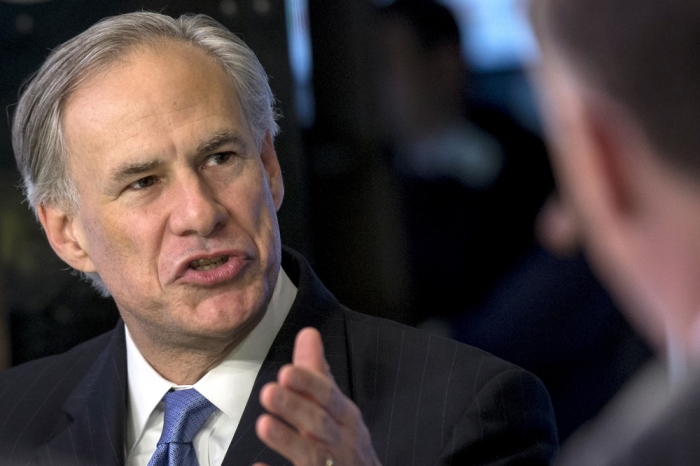Judge Blocks Texas Rule Requiring Burial or Cremation of Aborted Babies

A federal judge in Texas issued a temporary restraining order Thursday that blocks new regulations requiring health clinics to bury or cremate the bodies from abortions and miscarriages from taking effect on Dec. 19.
Abortion rights organizations, including The Center for Reproductive Rights and other national advocacy groups, filed a lawsuit on Monday charging that the rule unfairly "burdens women seeking pregnancy-related medical care" by imposing "a funeral ritual on women who have a miscarriage management procedure, ectopic pregnancy surgery, or an abortion."
The Center for Reproductive Rights further noted in a press statement Thursday that their lawsuit is seeking a permanent injunction against the regulations which were "designed to cut off access to legal abortion and shame women."
"We are pleased that the court has prevented these outrageous restrictions from going into effect in Texas, where they would have created immediate and dangerous new barriers on women's access to health care," said David Brown, senior staff attorney with the Center for Reproductive Rights. "We look forward to demonstrating that these regulations are unwise, unjustified and unconstitutional, and should be permanently struck down."
A preliminary injunction hearing has been set for January 3-4, 2017 and Austin-based U.S. District Judge Sam Sparks, who handed down the ruling Thursday, is expected to rule by Jan. 6 on whether or not the new regulations will be allowed to stand, according to the Associated Press.
When the new regulations were proposed earlier this year, said the AP, the proposal attracted more than 35,000 public comments.
The state health department noted that it "believes the methods allowed by the rules will protect the public by preventing the spread of disease while also preserving the dignity of the unborn in a manner consistent with Texas laws."
And pro-life advocates support the regulations.
"What we're saying is, it needs to be humane, and the mother needs to be given the opportunity to have a say and be informed with what's happening," Kristi Hamrick of Americans United for Life told NPR. Americans United for Life has created model legislation intended for other states similar to the Texas regulations.
Republican Texas Gov. Greg Abbott was a major force behind the proposal of the regulations to the health commission in July, which came just days after the U.S. Supreme Court struck down anti-abortion laws that would have whittled down abortion clinics in the state to about 10.
A wave of anti-abortion regulations have followed in several states since a controversial undercover investigation of Planned Parenthood by the Center for Medical Progress alleged that the abortion provider uses partial-birth abortions to sell "baby parts."
Ohio Attorney General Mike DeWine would later call a news conference to announcing that he had also discovered that fetuses were being "cooked" or sterilized with steam and dumped with other garbage, according NPR.
"Fetuses from abortions are being cooked and then put into landfills and mixed in with all other garbage that's out there," said DeWine. "I think it's just wrong."
Funeral directors however are concerned about how things will change if the new regulations are allowed to take effect.
"If the regulations do go into effect, we as an industry, we're real uncertain and real uncomfortable at this point cause we really don't know what to expect," Michael Land, a past president of and current spokesman for the 4,000 members of the Texas State Funeral Directors Association, told NPR.
Land said funeral home directors had met with officials from Gov. Abbott's office when the regulations were proposed to express their concerns but nothing they said made a difference.
"Members of our legislative committee did meet with the governor's office to express our concerns. However, the governor's office was not receptive. Nothing we were saying was really making any difference as to how they felt about this rule," Land said.
Funeral homes in Texas, according to NPR, are currently required to cremate the remains from miscarriages after the fifth month of pregnancy. Because that doesn't happen very often, said Land, funeral homes frequently undertake the service which can cost up to $450 for free.
"Fetal death cremation could approach $400, $450," Land said. "Just a grave space alone in a little moderate cemetery will cost at least $500, $550."
With tens of thousands of abortions and miscarriages that happen in Texas annually, said Land, there is no way the funeral industry can afford to absorb the costs under the new regulations.
Pro-life advocates dispute this, noting that pre-born babies are tiny, so cremation or burial costs should be low. The abortion industry already contracts with companies that offer disposal services and the current costs of disposing of an aborted fetus in a medical waste landfill is built into the cost of an abortion. Additionally, the Texas Catholic Conference has announced plans to offer free burial of babies who die from an abortion.




























